Having a generator near a propane tank may not seem like a big deal, but it can actually be quite dangerous. If the generator is not properly ventilated, the fumes from the propane tank can build up and cause an explosion. With that said, let's take a look at what is considered a safe distance between a propane tank and a generator.
A general rule of thumb is to place a generator at least 10 feet from a propane tank. However, it's always best to consult with your local fire department or a certified technician to determine the safest distance for your particular setup. By taking these precautions, you can help prevent a tragedy from happening.
Understanding how to set up your generator and propane tank safely is critical to prevent an explosion. In this article, we will take a closer look at the proper way to do this. In addition, we will answer other frequently asked questions about propane tanks and generator setups, so read on!
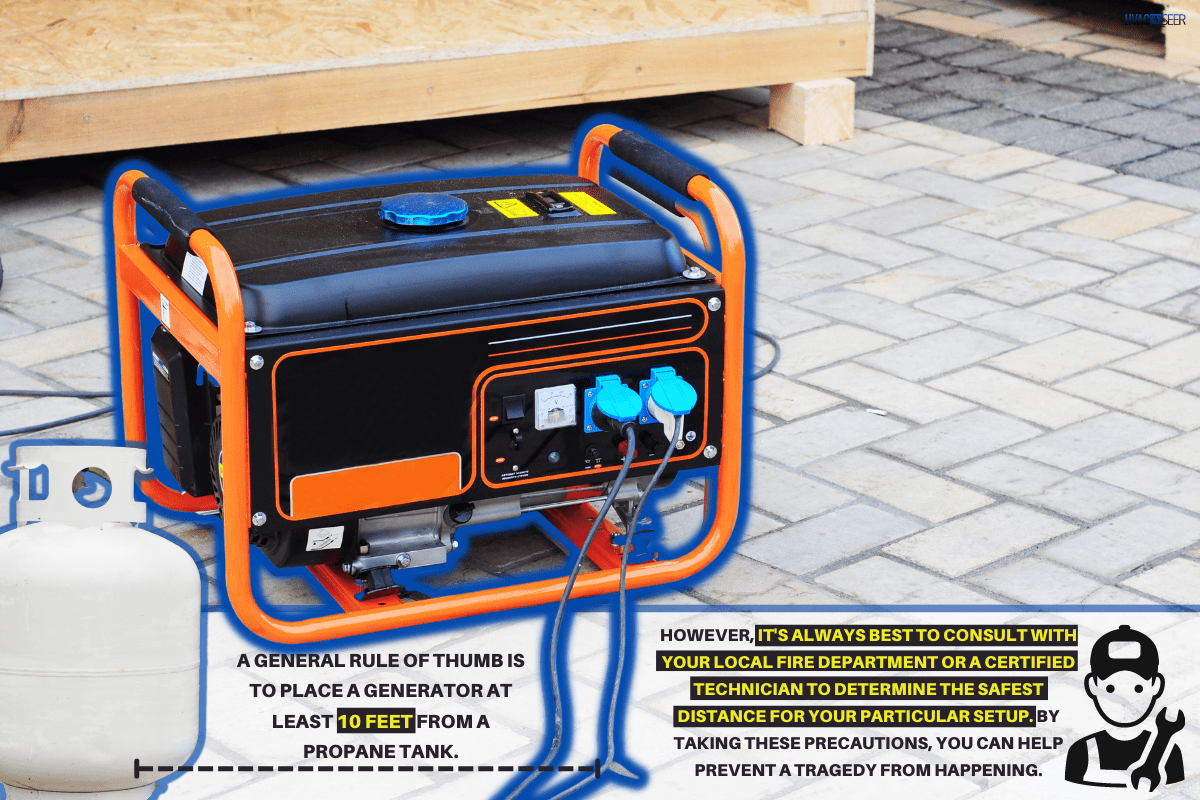
What Is A Safe Distance Between A Propane Tank And A Generator?
Portable generators that run on propane are handy to have around during a power outage. They can help keep your lights on and your fridge running. But if you're not careful, they can also be dangerous.
Propane is a highly combustible gas, and if there's a leak, it can quickly build up and cause an explosion. That's why it's important to know how to set up your generator and propane tank safely.
So, what is a safe distance between a propane tank and a generator? A general rule of thumb is to place the generator at least 10 feet away from the propane tank.
Since a generator has an ignition source, it's also important to make sure that the area around it is clear of any flammable materials. This includes things like gasoline, propane, and natural gas.
Not only is calling the propane company to ask them what the safe distance is a good idea, but you should also have your propane tank inspected. By doing so, you can be sure that there are no leaks.
If you do notice any leaks, it's important to take care of them right away. You can either fix the leak yourself or have a professional do it.
When it comes to propane, safety should always be your top priority. By following the proper precautions, you can help prevent an explosion.
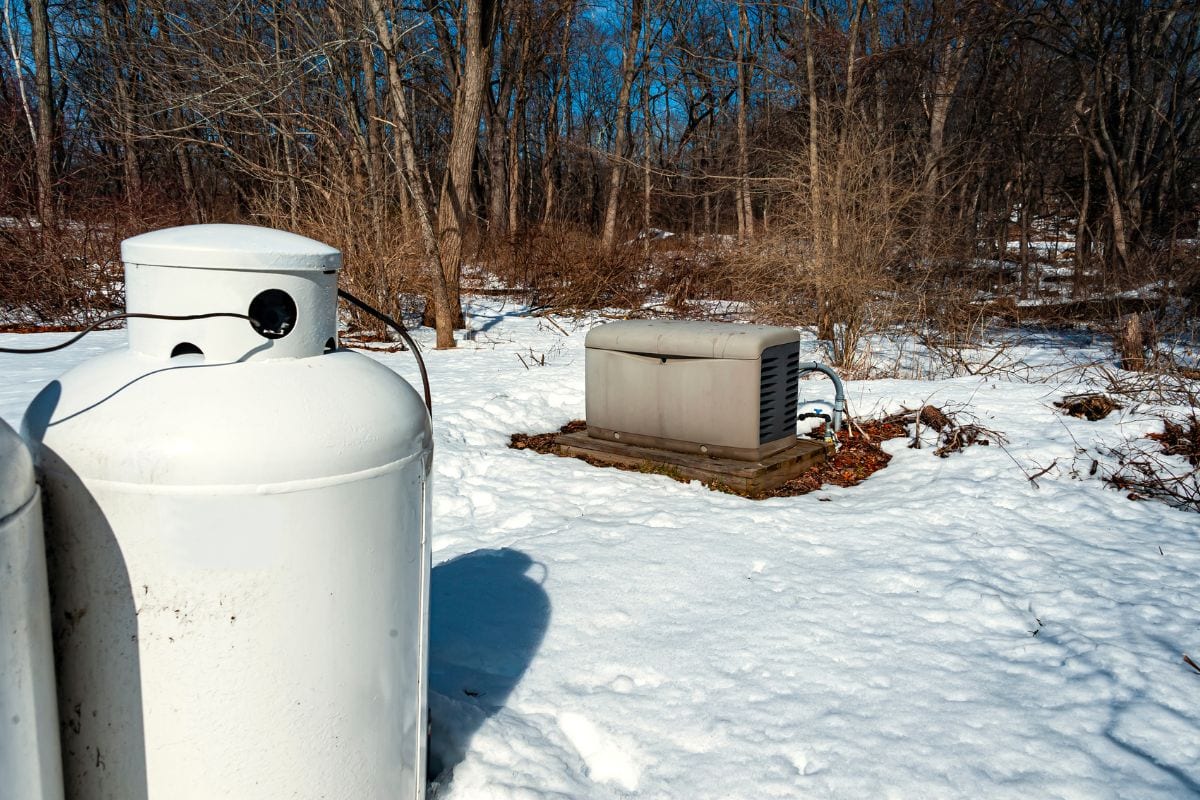
How Do I Set Up My Propane Tank And Generator Safely?
The first thing you need to do is find a level spot to put your generator. Once you've found a spot, make sure to place the generator at least 10 feet from the propane tank.
In addition, your generator should be 2-5 feet from anything combustible such as decking, a garage, or your house. The generator should also be 5 feet away from doors, vents, and windows.
If you're using a propane-powered generator, it's also important to make sure that the area around it is adequately ventilated. This will help prevent the buildup of dangerous fumes.
Next, you'll need to connect your generator to your propane tank. To do this, you'll need a regulator and a hose. The regulator will help control the flow of propane, and the hose will carry the propane from the tank to the generator.
It's important to make sure that the connections are tight and secure. Otherwise, there could be a leak. Once everything is set up, you'll need to start your generator and let it run for a few minutes. This will help prevent any propane buildup in the engine.
After the generator has been running for a while, you can then turn on any appliances or devices that you need to power. If you're not using the generator, it's important to turn it off and disconnect it from the propane tank. This will help prevent any accidents.
By following these steps, you can help ensure that your propane tank and generator are set up safely.
How Much Clearance Does A Generator Need?
As we mentioned earlier, your generator needs ventilation and clearance to run safely. But how much clearance does it really need?
The answer depends on the size of your generator. For example, a small generator might only need 3-4 feet of clearance on all sides.
On the other hand, a larger generator could require 5-6 feet of clearance. In addition, the area around your generator should be clear of any flammable materials.
If you're not sure how much clearance your generator needs, it's always a good idea to consult the manufacturer's instructions. They will have the most accurate information.
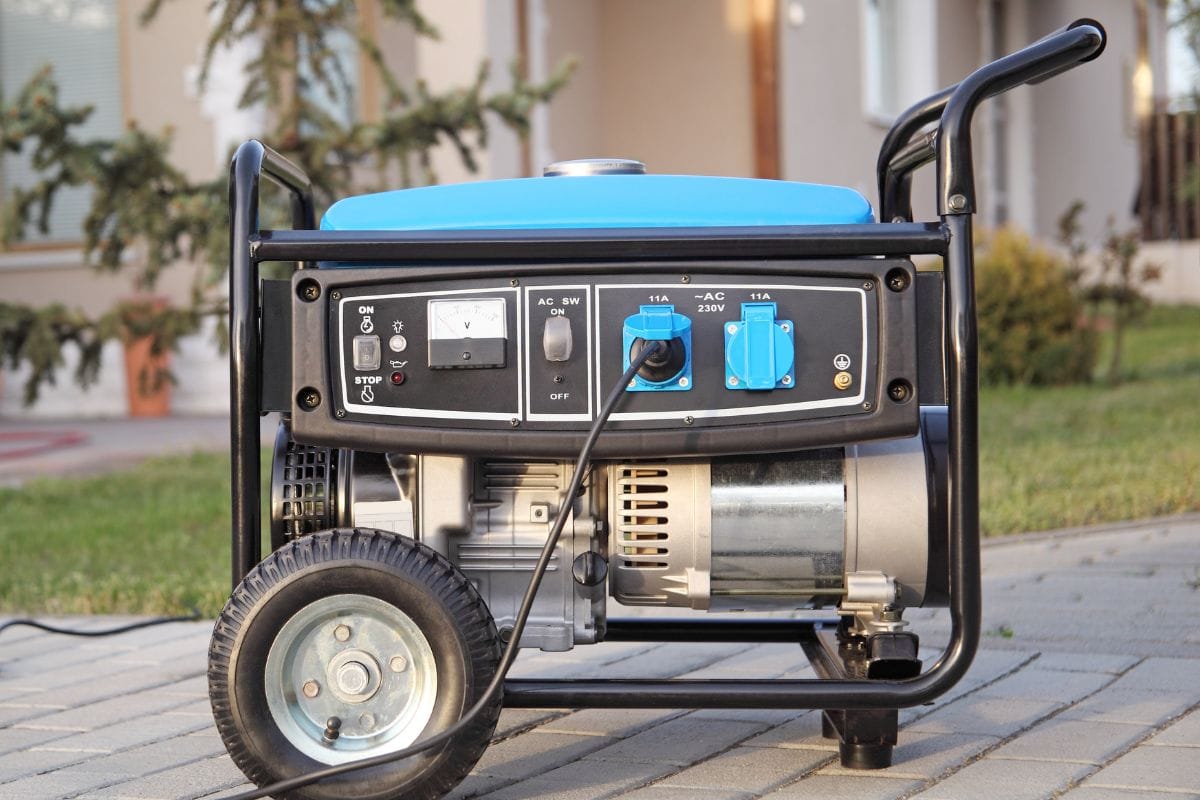
Is It Safe To Have A Propane Tank In Your House?
It's not safe to have a propane tank in your house. If there's a leak, the gas can build up and cause an explosion. If you need to use a propane-powered appliance, it's best to keep the tank outside. This will help prevent any accidents.
If you do keep the propane tank inside, it's best to put it into a detached garage or shed. These areas have enough ventilation and protect the tank from the elements. Don't put your propane tank in an attached garage, as this isn't safe.
In addition, you should never store a propane tank in an enclosed space such as a basement. The gas can build up and cause serious health problems.
Again, it's good to check with your local propane company to see what their guidelines are.
Is It Okay To Leave A Propane Tank Outside In Winter?
Believe it or not, it's actually okay to leave a propane tank outside in winter. Propane tanks won't freeze until -44 degrees Fahrenheit.
So, unless you live in a region with very cold winters, your propane tank should be fine. If you are worried about your propane tank freezing, you can use an electric blanket. This is a safe way to keep your propane tank warm. Just make sure to wrap the electric blanket around the entire tank.
You can also build a barricade for your propane tank. This will help protect it from the elements and keep it warm. You can build a propane tank barricade out of wood, bricks, or cinder blocks. Just make sure that the opening is facing away from your home.
Can You Leave A Propane Tank In The Sun?
At all costs, try to avoid leaving your propane tank in direct sunlight. The heat can cause the pressure in the tank to build up. This can lead to an explosion.
Keep the propane in a shaded area to avoid this problem. For example, leaving your propane tank and generator under a tree can help keep them cool.
In addition, try to avoid leaving your propane tank in a hot car. The temperatures can reach well over 100 degrees Fahrenheit, which can be dangerous.
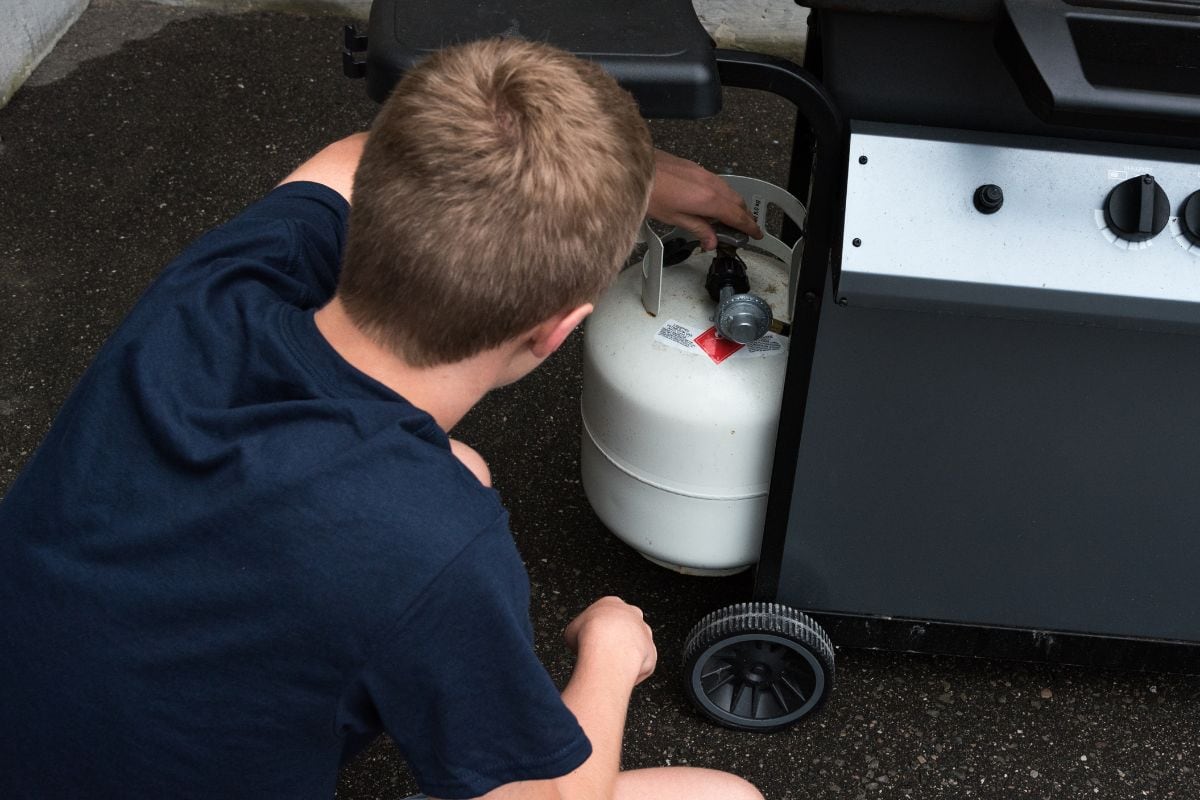
Does Propane Go Bad?
Propane is an interesting source of fuel because it doesn't go bad. In fact, propane has an indefinite shelf life. This is good news if you need to store propane for an emergency. So, if your propane generator isn't starting, then it's probably not because the propane has gone bad.
There are other reasons why your generator might not be starting. For example, the spark plugs might be dirty. Or, there might be an issue with the carburetor. In addition, you should check for a propane leak. If there's a leak, then the propane will slowly escape, and you'll eventually run out.
How Often Should You Check Your Propane Tank?
You should check your propane tank at least once a month. This will help you make sure that there are no leaks.
To check for leaks, use a soapy water solution. Simply mix dish soap and water together. Then, brush the solution onto the connections of your propane tank. If there's a leak, you'll see bubbles forming. These bubbles indicate that propane is escaping.
If you find a leak, tighten the connections and check for bubbles again. If the leak persists, then you'll need to replace the propane tank.
In addition, you should have your propane tank tested every 5-10 years. This will help ensure that it's in good condition and won't explode.
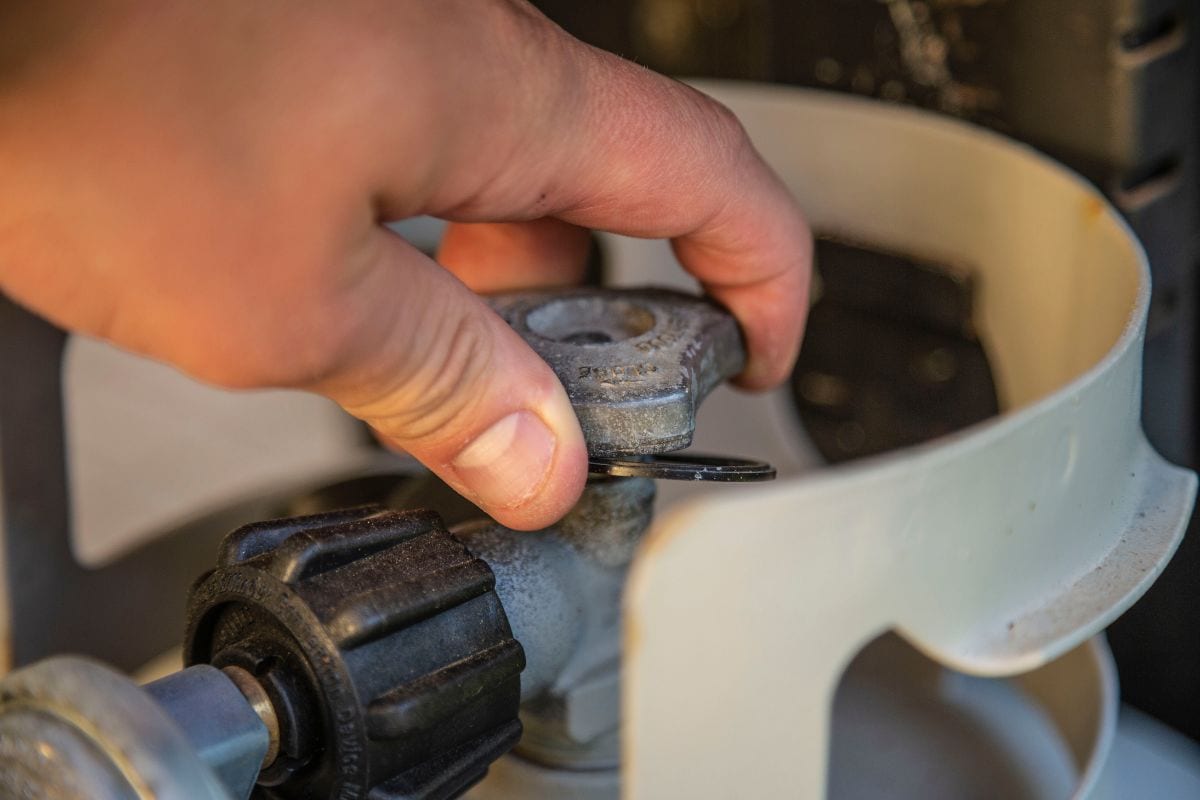
What Should You Not Do With A Generator?
While generators can be very useful, there are some things that you should not do with them. For example, you should never use a generator indoors.
The fumes from the generator can be very dangerous. In fact, they can kill you in just a few minutes. In addition, ensure your generator is protected from wet conditions. If the generator gets wet, it can short-circuit and cause a fire.
Finally, never store your generator near flammable materials. The generator emits sparks that could easily ignite these materials.
Final Thoughts
Propane tanks are generally very safe. However, it's always better to be safe than sorry. By following these tips, you can help keep your propane tank in good condition and avoid any accidents.
Made it to the end? Here are other articles you might enjoy:
Why Is My Generator Only Powering Half The House?
